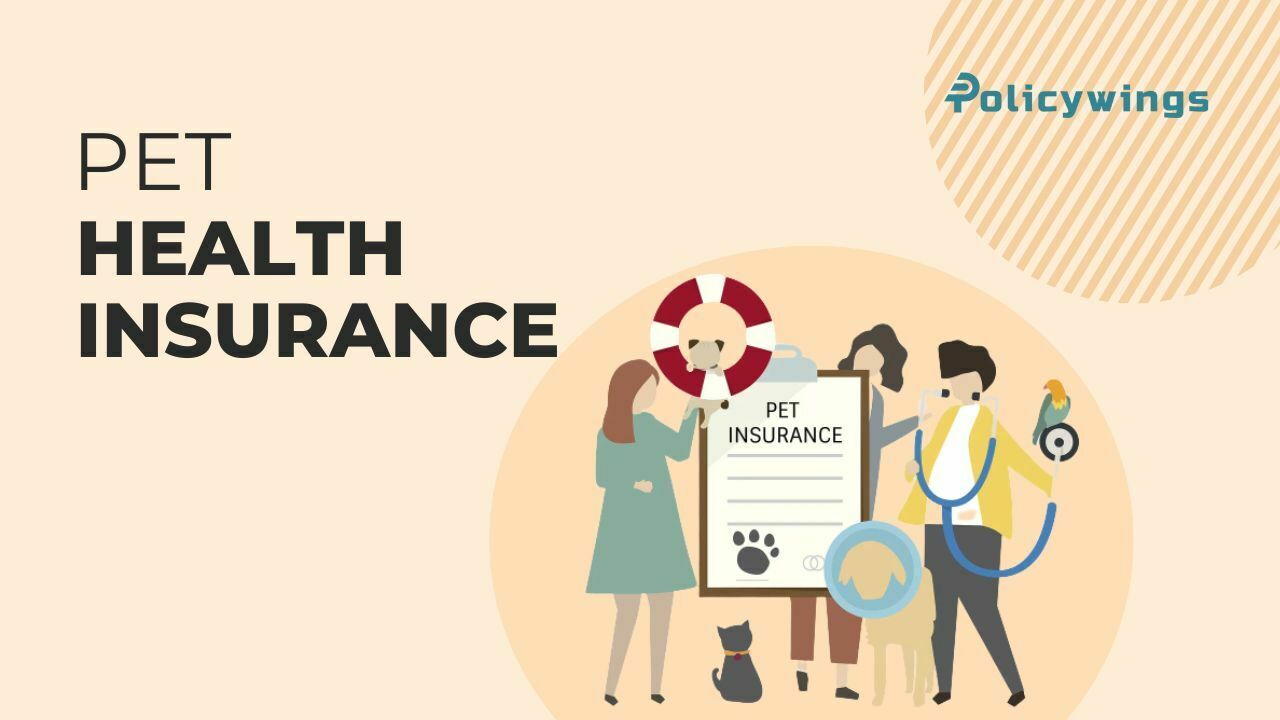In-Depth Guide to Pet Health Insurance: Benefits and Selection

Pet ownership brings joy, companionship, and a sense of responsibility to our lives. Whether you have a lovable Labrador, a charismatic cat, or a captivating chameleon, the bond with your pet is priceless. However, alongside the joys of pet ownership, there also come responsibilities, including the duty to ensure your pet’s health and well-being.
This is where pet health insurance comes into play. In this comprehensive guide, we will explore the world of pet health insurance, discussing its importance, how it works, its advantages and disadvantages, and how to choose the right plan for your furry friend.
Understanding Pet Health Insurance
Pet health insurance is designed to cover the cost of veterinary care for your pet, just as human health insurance covers medical expenses for individuals. It helps pet owners manage the financial burden of unexpected and often expensive veterinary treatments, ensuring that your pet receives the best possible care without putting a strain on your wallet.
The Importance of Pet Health Insurance
- Financial Security: One of the primary reasons pet health insurance is essential is its ability to provide financial security. Veterinary care can be expensive, especially for complex procedures and treatments. With insurance, you won’t have to make the difficult choice between your pet’s health and your budget.
- Peace of Mind: Knowing that you have insurance coverage for your pet can provide peace of mind. In emergencies or when your pet is facing a serious illness, you can focus on their well-being rather than worrying about the cost of treatment.
- Preventive Care: Some pet insurance plans also cover preventive care, including vaccinations, routine check-ups, and dental care. This encourages pet owners to keep up with their pet’s healthcare needs and catch potential issues early, reducing long-term health problems.
- Choice of Veterinarian: Unlike some human health insurance plans, most pet insurance allows you to choose your veterinarian. This means you can continue to visit the trusted veterinarian your pet is comfortable with.
How Pet Health Insurance Works
Pet insurance operates on a reimbursement basis. Here’s a simplified breakdown of how it works:
- Select a Plan: You choose a pet insurance plan that suits your pet’s needs and your budget. Plans typically have varying levels of coverage and premiums.
- Pay Premiums: You pay monthly or yearly premiums to maintain your pet’s coverage.
- Visit the Veterinarian: When your pet needs medical attention, you take them to the veterinarian for treatment. You pay the veterinary bill upfront.
- File a Claim: After the visit, you submit a claim to your insurance provider, including the bill and any necessary documentation.
- Reimbursement: The insurance company processes your claim and reimburses you for the eligible expenses, typically after deductibles and co-pays.
It’s important to carefully review the terms and conditions of your pet insurance policy, including coverage limits, deductibles, and waiting periods, to understand what is covered and what is not.
Advantages of Pet Health Insurance
- Financial Protection: The most significant advantage of pet health insurance is the financial protection it offers. It ensures that you can provide the best medical care for your pet without worrying about the cost.
- Access to Top-Quality Care: With insurance coverage, you can access specialized care, surgeries, and treatments that may not have been financially feasible otherwise.
- Peace of Mind: Knowing that you are prepared for unexpected veterinary expenses provides peace of mind. You can make decisions based on what is best for your pet’s health rather than your budget.
- Budget-Friendly: Pet insurance spreads the cost of veterinary care over time through manageable premiums, making it easier to budget for your pet’s healthcare.
- Preventive Care Incentive: Some insurance plans cover preventive care, encouraging pet owners to maintain their pet’s health with regular check-ups and vaccinations.
Disadvantages of Pet Health Insurance
- Cost: Pet insurance premiums can add up over the years, and you may not use the coverage for minor medical issues. Some pet owners may feel that they are not getting value for their money.
- Exclusions: Pet insurance policies may have exclusions or limitations on certain conditions, especially if they are deemed pre-existing. This can be frustrating if your pet has a chronic condition.
- Administrative Hassles: Filing claims and waiting for reimbursement can be time-consuming and administratively burdensome.
- Premium Increases: Just like human health insurance, pet insurance premiums can increase over time, making it less affordable as your pet gets older.
- Choice Limitations: While most pet insurance plans allow you to choose your veterinarian, some may have preferred provider networks that limit your options.
Choosing the Right Pet Insurance Plan
When selecting a pet insurance plan, consider the following factors:
- Coverage: Assess the extent of coverage the plan offers. Ensure it includes the types of treatments, procedures, and conditions that are most relevant to your pet’s breed and age.
- Cost: Compare premium costs and deductibles. Consider your budget and how much you are willing to pay for coverage.
- Reputation: Research the insurance company’s reputation for customer service, claims processing, and overall satisfaction among pet owners.
- Exclusions: Carefully review the policy’s exclusions and limitations, especially regarding pre-existing conditions.
- Add-Ons: Some policies offer add-ons for additional coverage, such as dental care or alternative therapies. Determine if any of these are necessary for your pet.
- Waiting Periods: Be aware of any waiting periods before coverage kicks in. Some policies have waiting periods for specific conditions.
- Customer Reviews: Read reviews from other pet owners who have experience with the insurance company and its policies.
- Age and Breed: Consider your pet’s age and breed when choosing a plan. Some breeds are prone to specific health issues, and coverage needs may vary based on age.
Wrapping Up
Pet health insurance can be a valuable tool in ensuring that your beloved furry friend receives the best medical care possible. It provides peace of mind, financial security, and access to a wide range of treatments.
However, it’s essential to research and select the right insurance plan for your pet’s specific needs, taking into account factors like coverage, cost, and reputation. Ultimately, pet health insurance can help you provide your pet with a long, healthy, and happy life, and that’s a priceless investment in your cherished companion’s well-being.
Related Posts
FAQs
Pet health insurance is a type of coverage that helps you pay for your pet’s medical expenses, similar to how human health insurance works. You choose a plan, pay premiums, and when your pet needs veterinary care, you submit a claim to the insurance company for reimbursement.
Coverage can vary between plans, but pet health insurance often covers accidents, illnesses, surgeries, hospitalizations, prescription medications, and some preventive care like vaccinations and annual check-ups. Some plans also offer coverage for dental care and alternative therapies.
Yes, most pet insurance policies have exclusions or limitations. Common exclusions include pre-existing conditions, cosmetic procedures, and certain hereditary conditions. It’s essential to carefully review the policy’s terms and conditions to understand what is covered and what is not.
In many cases, yes. Most pet insurance plans allow you to choose your preferred veterinarian or specialist. However, some policies may have preferred provider networks, so it’s a good idea to check with the insurance company before purchasing a plan.
Premiums are typically based on several factors, including your pet’s age, breed, location, and the level of coverage you choose. Generally, premiums for older pets and those with pre-existing conditions may be higher.












